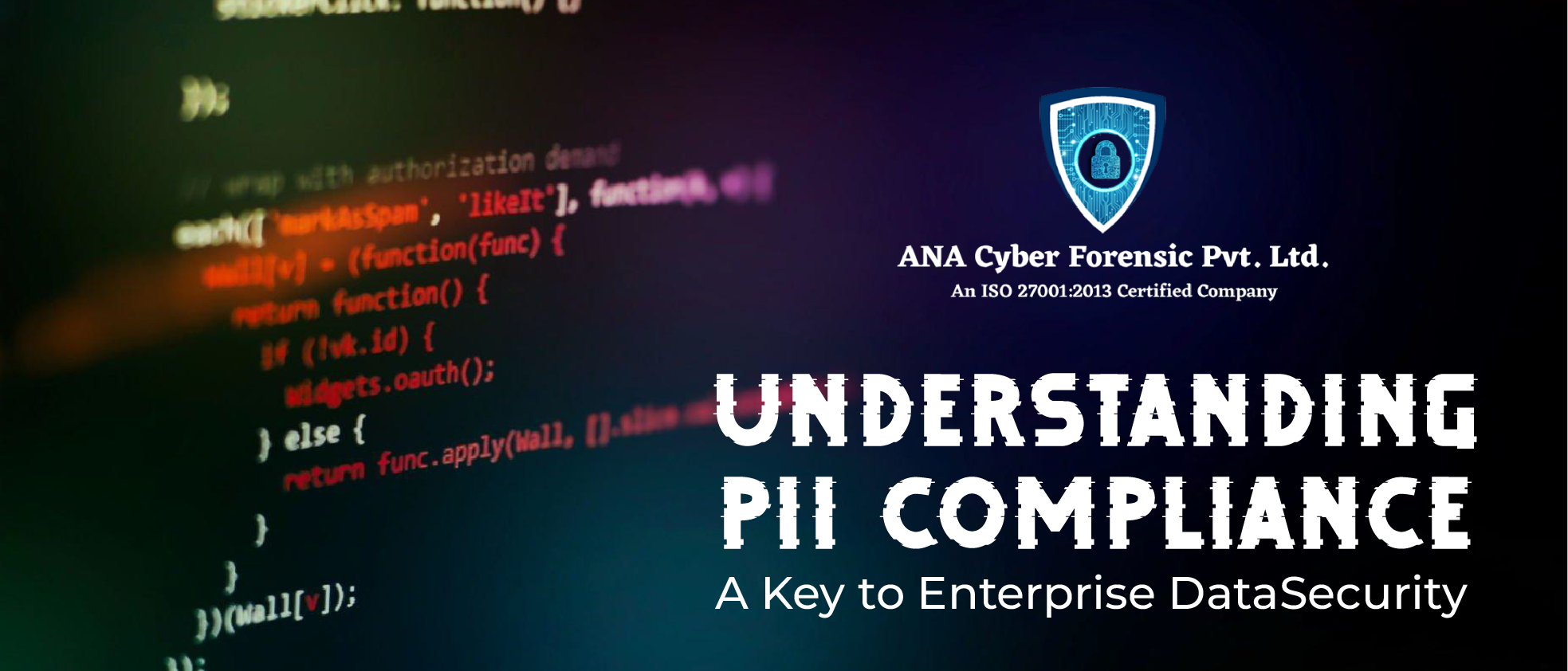Understanding PII Compliance: A Key to Enterprise Data Security

Introduction:
In the contemporary digital landscape, where data reigns supreme, safeguarding sensitive information is paramount. Personal Identifiable Information (PII) is one of the most critical data categories requiring stringent protection. Understanding PII compliance is not just a legal obligation but a fundamental element of robust enterprise data security. In this blog, we will delve into the nuances of PII compliance, its significance in the realm of data security, and how organizations can ensure comprehensive protection for this invaluable asset.
Defining PII: What Does It Encompass?
PII includes any information that can be used to identify an individual. This incorporates a wide range of data such as names, addresses, social security numbers, email addresses, phone numbers, financial details, and even biometric records. In essence, any piece of data that, if breached, could potentially lead to identity theft or unauthorized access falls under the category of PII.The Significance of PII Compliance: Legal Obligations and Trust Preservation
- Legal Obligations:
- Preserving Customer Trust:
Many jurisdictions have enacted stringent data protection laws mandating organizations to safeguard PII. Non-compliance can result in severe fines and legal consequences. Understanding and adhering to these regulations is non-negotiable.
Beyond legal obligations, PII compliance is instrumental in preserving customer trust. When individuals trust that their sensitive data is secure, it enhances the reputation of the organization and fosters customer loyalty.
Key Components of PII Compliance:
- Data Encryption:
- Access Controls:
- Regular Audits and Monitoring:
- Incident Response Plan:
Encrypting PII both at rest and in transit ensures that even if the data is compromised, it remains unintelligible to unauthorized users.
: Implementing strict access controls ensures that only authorized personnel can access PII. Multi-factor authentication and role-based access are essential components of robust access management.
Continuous monitoring and periodic audits help in identifying any unauthorized access or suspicious activities promptly. This proactive approach is vital in maintaining data integrity.
Having a well-defined incident response plan is crucial. In the event of a breach, a swift and organized response can minimize the damage and mitigate potential fallout.
How ANA Cyber Forensic Pvt Ltd Can Assist:
- PII Compliance Assessment:
- Customized Compliance Solutions:
- Employee Training Programs:
ANA Cyber Forensic Pvt Ltd conducts comprehensive assessments to evaluate the current state of PII compliance within organizations. This includes identifying gaps, vulnerabilities, and areas for improvement.
ANA Cyber offers tailored compliance solutions designed to meet the unique needs of each organization. Their expertise ensures that businesses not only meet but exceed the required compliance standards.
ANA Cyber provides specialized training programs to educate employees about the importance of PII security, best practices, and recognizing potential threats. Empowering staff is a vital step in maintaining compliance.
Conclusion:
Understanding PII compliance is indispensable in the modern digital landscape. By adhering to stringent standards, employing advanced cybersecurity measures, and partnering with experts like ANA Cyber Forensic Pvt Ltd, enterprises can fortify their defenses, preserve customer trust, and navigate the complexities of data security with confidence. Embracing PII compliance is not just a regulatory requirement; it is an ethical commitment to safeguarding the integrity and confidentiality of individuals' sensitive information.
Contact
For more information on how we can help you secure your data, get you compliant and protect your business, please complete the form below and one of Information security / Cyber Forensic expert and Compliance specialists will respond to you as soon as possible.


